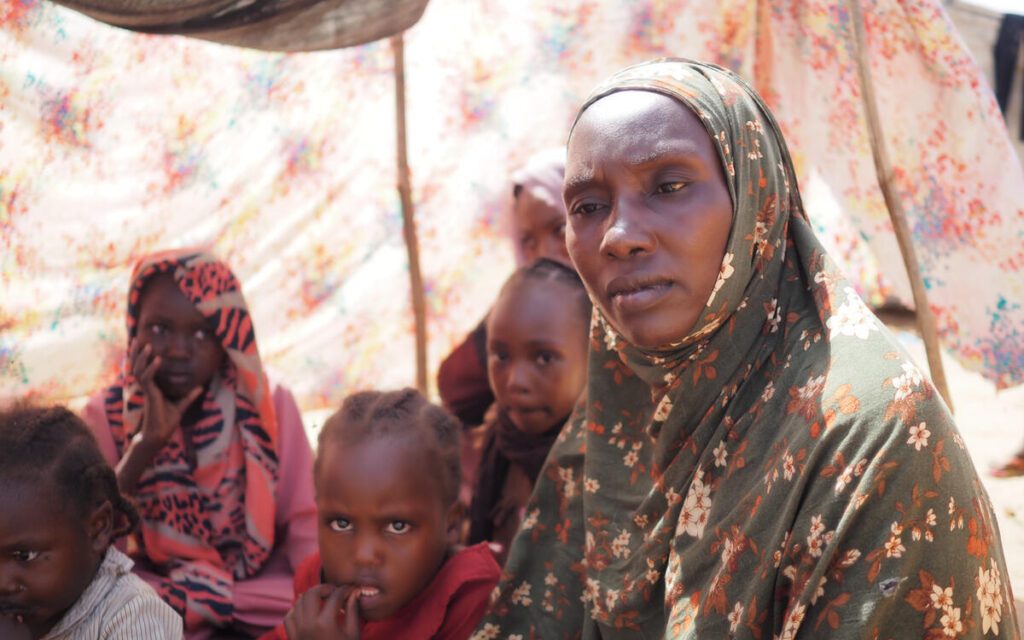Feature Image taken by Ying Hu, photographer at United Nations High Commissioner for Refugees.
NORTH DARFUR, Sudan (BP) – Southern Baptist Send Relief continues to aid Sudan, as half the nation faces acute hunger and famine chases refugees and internally displaced persons.
Cholera and heavy rains exacerbate the humanitarian crisis, according to international governmental agencies.
Jason Cox, Send Relief’s vice president of international ministry, said the war is not getting enough attention in the U.S., even as Send Relief continues to send aid.
“This war has created what is now the largest population of forcibly displaced people in the world. The humanitarian needs are overwhelming, and growing. But the opportunities are also great,” Cox told Baptist Press. “Humanitarian crises like these often create unique and unforeseen opportunities for Gospel advance, and sometimes – as in the case of Sudan – among some of the least-reached peoples of the world.
“Send Relief is positioned to do more, and we invite Southern Baptists to come alongside us to have an even greater impact.”
Famine has plagued the Zamzam Camp of more than a half million displaced people in the North Darfur region of Sudan since early August and will likely continue through October, the Integrated Food Security Phase Classification Famine Review Committee has reported.
Famine also exists in the Nuba Mountains in South Kordofan and the New Funj area in the Blue Nile state, areas where persons internally displaced by the war have increased the population from 1.2 million to 3.9 million since April 2023, the Sudan People’s Liberation Movement-North announced Aug. 14.
The paramilitary Rapid Support Forces have prevented humanitarian food aid from reaching critical areas where internally displaced persons have sought help, the Integrated Food Security Phase Classification Famine Review Committee has reported.
Send Relief continues to respond to the crisis, working several partners in the area to serve displaced Sudanese. Send Relief has facilitated 20 relief projects for displaced Sudanese in four countries, primarily through food relief, Cox told Baptist Press.
“One of our partners inside Sudan is reaching deep into remote areas the displaced are pouring into, providing food relief to thousands of families,” he said. “And while these projects are meeting acute physical needs of the most vulnerable, they are also giving powerful expression to the Gospel in word and deed.
“Many of those receiving help are encountering Christ for the first time, and even in the midst of the horrors of war, the church is growing.”
Flooding from heavy rains killed more than 130 people, many of them in the Red Sea State where the Arba’at dam collapsed Aug. 25, CNN reported, exacerbating food shortages and a cholera outbreak. Dozens remain missing, and nearly 140,000 were displaced across 14 states, the International Organization for Migration reported.
Hundreds of Cholera cases have been reported in areas where refugees are sheltering. As of Aug. 23, 119 refugees had contracted Cholera and five had died, Kristine Hambrouck, the UN High Commissioner for Refugees’ representative in Sudan said in a press briefing.
“Fighting, insecurity and persistent rainfall are hampering the transportation of humanitarian aid,” Hambrouck said. “In Sennar, Blue Nile, Jazirah, White Nile, Darfur, and Kordofan states – home to more than 7.4 million refugees and internally displaced Sudanese – access challenges have delayed the delivery of critical medicines and relief supplies.”
Nearly 16,000 Sudanese have died since the war began in April 2023, and 10.5 million have been displaced from their homes, 7.5 million of them internally. Hundreds of thousands of individuals who had sought refuge in Sudan from other countries have been forced to return to their home countries prematurely.
Donate to Send Relief here.
This article was originally written by Diana Chandler and published to the Baptist Press.





